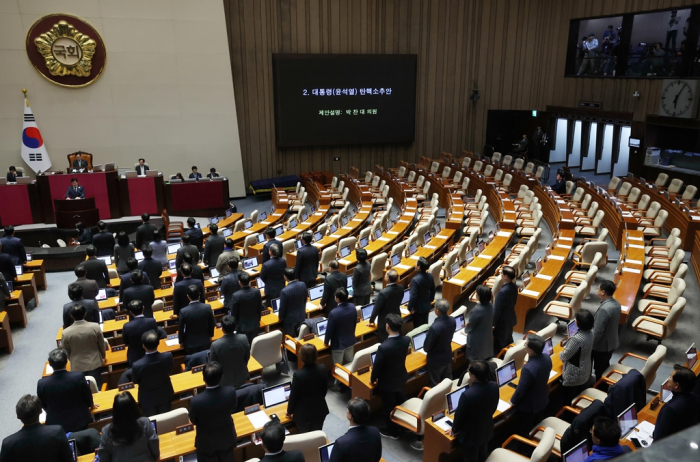
South Korean President Yoon Suk Yeol survived an impeachment vote against him after a whelming majority of governing party lawmakers boycotted parliament on Saturday.
Most ruling People Power Party lawmakers left the National Assembly’s main chamber ahead of the impeachment vote over his declaration of martial law earlier this week, which was overturned in parliament a few hours later.
The opposition bloc needed at least eight ruling party lawmakers in favor of the impeachment motion, which requires a two-thirds majority in the 300-seat parliament. Only two ruling party lawmakers are said to have voted for impeachment.
The main opposition Democratic Party said it would push again for Yoon’s impeachment by holding an extraordinary National Assembly meeting as early as Dec. 11.
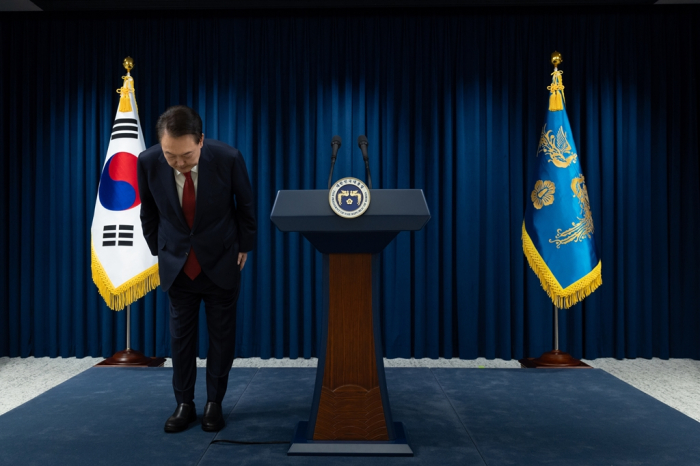
Earlier in the day, Yoon apologized to the nation in his first public comments since his botched attempt to impose martial law threw the country into political chaos and led to calls for his impeachment.
“I will not avoid the legal and political responsibility related to this martial law declaration,” Yoon said.
Pressure on Yoon has mounted in the days since, with protesters and opposition figures demanding his impeachment.
The vote came after Yoon declared emergency martial law on Tuesday night, banning all political activities and sending troops to take over the National Assembly.
The opposition proposed impeaching Yoon, arguing that he had committed “insurgency” and other anti-constitutional crimes when he declared martial law.
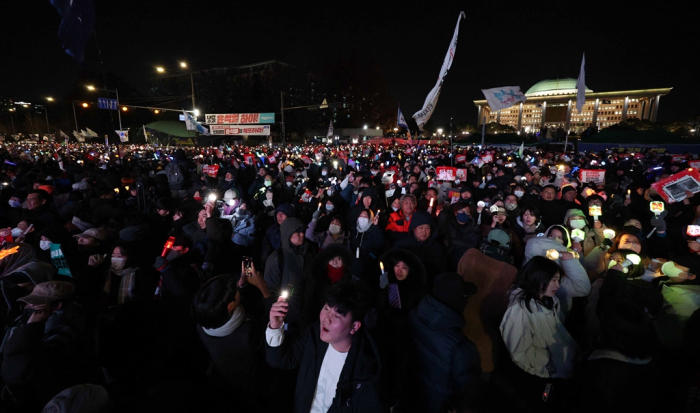
If an impeachment bill is passed at the next vote, Yoon will be suspended from office and Prime Minister Han Duck-soo will fill in as leader.
The Constitutional Court will then decide whether to reinstate or remove him – a process that could take up to 180 days.
YOON’S FUTURE REMAINS UNCERTAIN
Analysts said although he survived Saturday’s vote, Yoon’s future remains uncertain amid growing calls for his impeachment among citizens and even within the ruling camp.
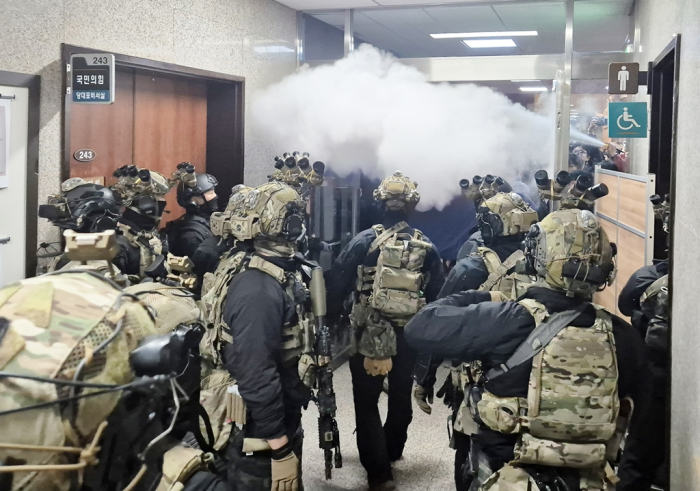
People Power Party leader Han Dong-hoon said it was “impossible for the president to carry on his normal duties.”
Yoon’s surprise declaration of martial law lasted only six hours, until early Wednesday. He was forced to lift it following a vote in the Assembly to repeal the military rule.
The short-lived martial law sparked outrage in the streets and concern among Korea’s ally countries. The defense minister, who is said to have recommended Yoon declare martial law, has resigned.
The national police are investigating accusations of treason and other related crimes over the declaration of martial law. The prosecution and the Corruption Investigation Office for High-ranking Officials are also considering investigations.
Before the impeachment vote, the parliament voted against a bill calling for a special counsel investigation into corruption allegations surrounding First Lady Kim Keon Hee.
The bill, put to a revote after President Yoon vetoed it last month, was just two votes shy of the 200 votes for approval.
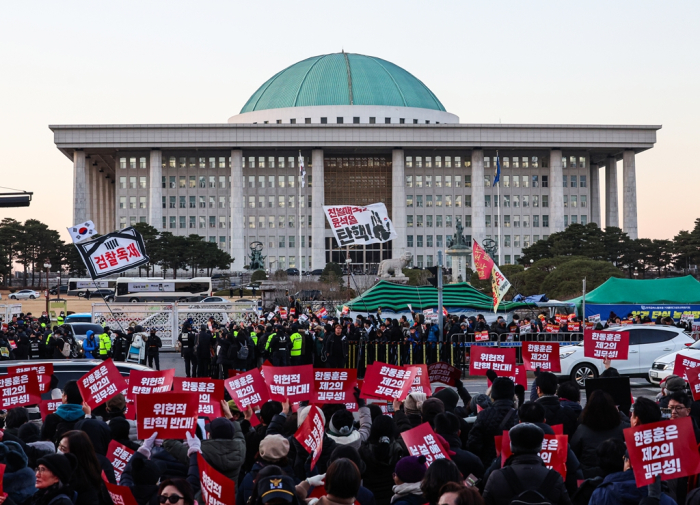
ECONOMIC RAMIFICATIONS
The political crisis rattled Korea’s financial markets on Wednesday in a knee-jerk reaction.
Korean stock, bond and foreign exchange markets, however, have since remained relatively stable.
On Friday, the Korean won retreated to 1,429.2 per dollar, marking its weakest point since Nov. 4, 2022 in domestic trading, although it recouped much of the losses on massive dollar-selling intervention.
The benchmark Kospi index closed down 0.56% at 2,428.16 after declining to as low as 2,397.73, its lowest point in 13 months.
Global credit ratings agencies largely maintained Korea’s current sovereign ratings but warned of downward pressure on the country’s economic credit if the crisis persists.
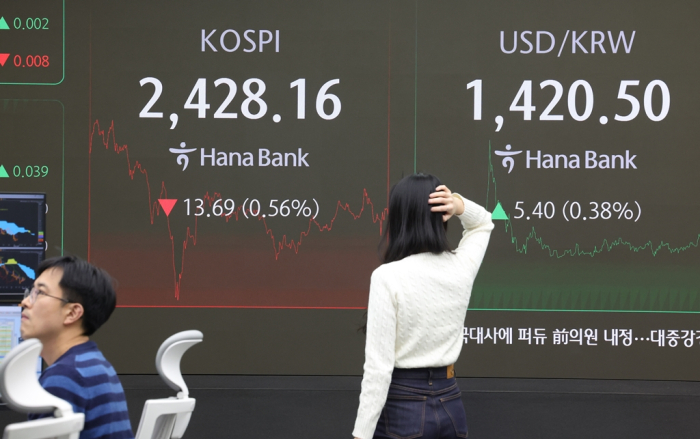
“Downside risks would increase in the event of a protracted political crisis or if sustained political divisions erode policymaking effectiveness, economic outcomes or fiscal management,” Fitch Ratings said on Friday.
Moody’s also echoed similar views.
Korea’s finance minister and the central bank chief vowed to take necessary action to stabilize Asia’s fourth-largest economy.
Finance Minister Choi Sang-mok dismissed fears the country would fall into a recession next year as overdone.
Bank Of Korea Governor Rhee Chang-yong also shrugged off concerns about the negative impact of the country’s political risk on the economy.
By So-Ram Jung and Jae-young Han
ram@hankyung.com
In-Soo Nam edited this article.















